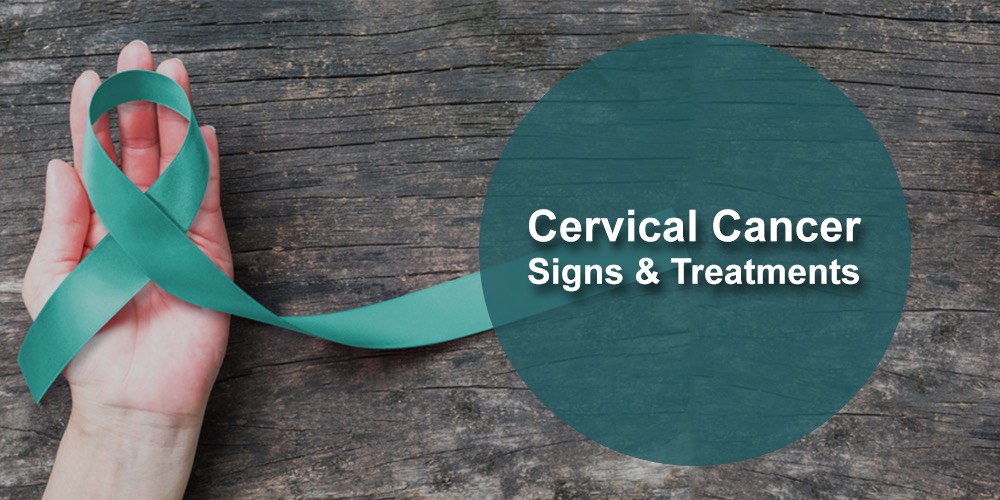Cervical Cancer: Signs & Treatments

There are many types of cancer conditions and Cervical Cancer is the third most common type of Cancer. Cervical Cancer is a malignant cancer tissue that occurs in the cervix of a woman.
There are many types of cancer conditions and Cervical Cancer is the third most common type of Cancer. Cervical Cancer is a malignant cancer tissue that occurs in the cervix of a woman. This cancer progresses slowly until it becomes invasive cancer, which means the cancer cells spread to other parts. These cells over a period of time become cancerous and spread deeply into the cervix as well as the surrounding areas.
Signs & Symptoms
Identifying the signs and symptoms of Cervical Cancer is really vital in order to begin the treatment. Some of the most common symptoms of cervical cancer include bleeding between menstrual periods, after menopause and during sexual intercourse. You must also look for other signs like foul smelling while discharge, lower abdominal pain, and low back pain. Sudden weight loss, frequent urination, pelvic pain as well as painful urination can also be experienced in some cases.
How to Diagnose
The first and the foremost step to finding cervical cancer is to conduct a regular Pap test, which is one of the most preferable and effective screening methods. Pap tests also work best in detecting changes in cervical cells. In this test, a sample of cells is taken from the cervix area to identify the cell changes. If the results are positive, doctors can do further tests.
Treatment Options
Cervical cancer if not diagnosed on time can be life-threatening. The treatment of Cervical Cancer mainly depends on the type, location, severity, side-effects as well as the patient’s overall health conditions.
At the initial stage of Cervical Cancer, either surgery or radiation combined with chemo may be used. In the advanced stages, radiation combined with chemo is usually the main treatment.
Raise Awareness to Prevent
Since January has been declared as the Cervical Health Awareness Month, it is of utmost importance to raise awareness about how women can protect themselves from the risk of Cervical Cancer. You can also join hands with non-profit organizations, health administrators, local authorities to make more and more people aware of the issue. You can also organize campaigns to spread awareness.




 There are many types of cancer conditions and Cervical Cancer is the third most common type of Cancer. Cervical Cancer is a malignant cancer tissue that occurs in the cervix of a woman.
There are many types of cancer conditions and Cervical Cancer is the third most common type of Cancer. Cervical Cancer is a malignant cancer tissue that occurs in the cervix of a woman.



